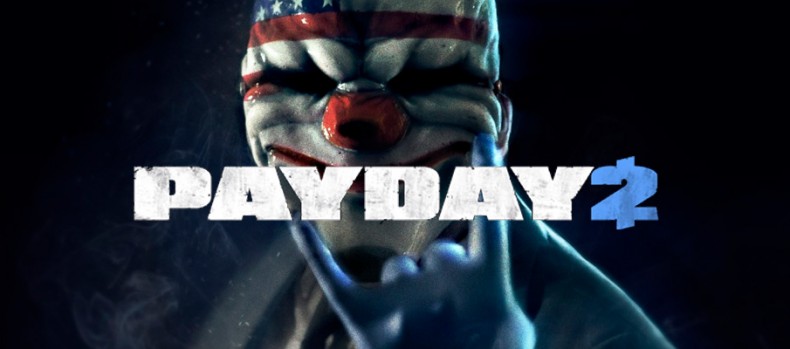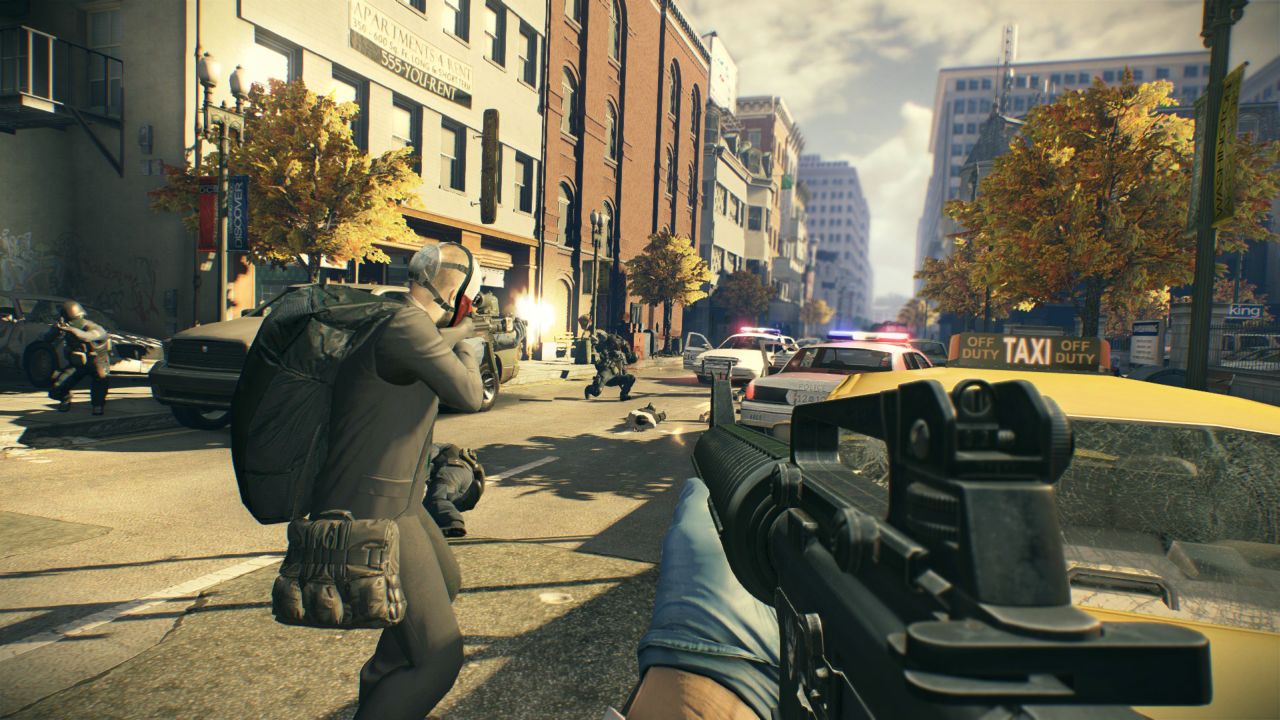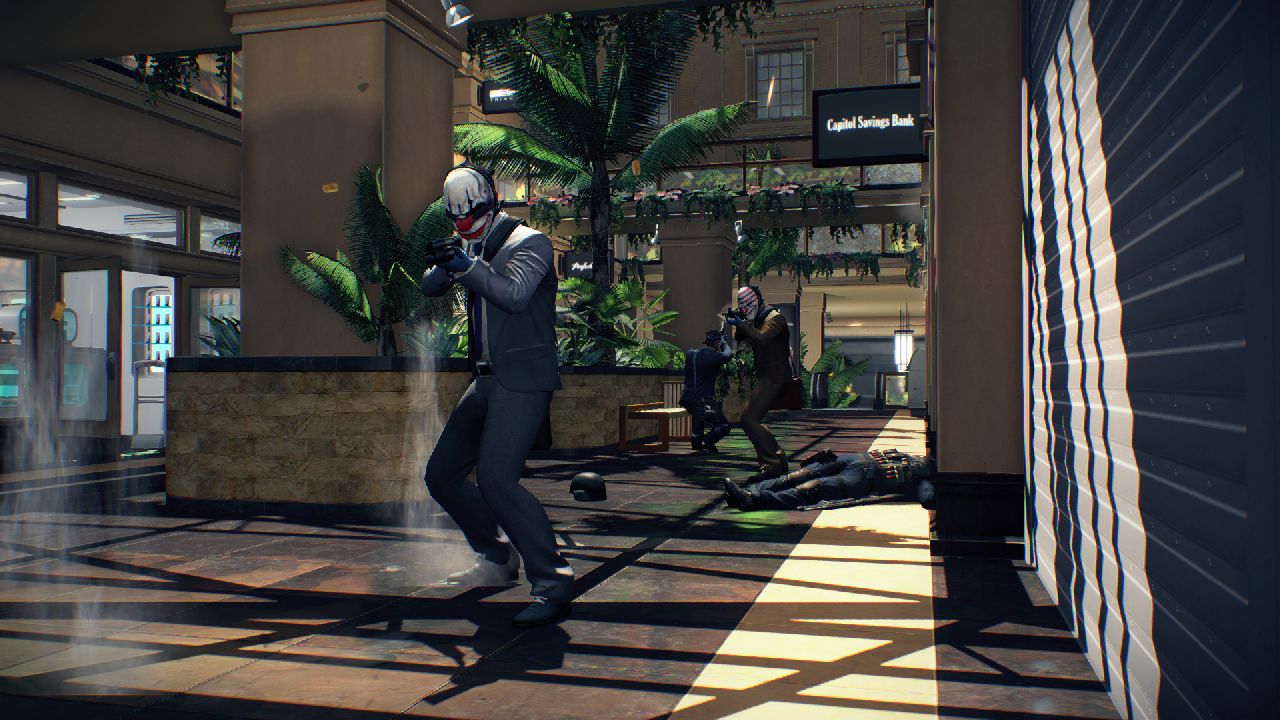Interview with Starbreeze Studios: Payday 2


After playing and reviewing Payday 2, which was an awesome experience, I was given the honor to write up a few questions for the hard-working people over at Starbreeze Studios. David Goldfarb, Game Director at Overkill Software, a Starbreeze studio, was gracious enough to answer my ponderous questions. My goal was to try and get a peek behind the studios’ curtains, get some insight into the development process, and see what goes on in the developers’ minds when they start out to make a sequel to a surprise hit title.
The concepts for a lot of the missions, especially the earlier ones, are very simple and yet the game always feels exciting. What steps did you take to help ensure the gameplay always felt fresh?
Conceptually, everyone understands what a robbery is. I think the strength of that concept definitely helps ground everything. In terms of the actual gameplay,a significant part of the excitement comes from the replayability and dynamics of all of our interlocking systems. There are so many possible ways a seemingly simple scenario can play out that you can never be quite sure what’s going to happen next. And since this is part of the whole robbery fiction, i.e., “and then shit went sideways”, it’s definitely playing into player expectation in a positive way. Finally, we play all the time and iterate on the levels. It’s obvious, but if something sucks, we work on alternatives until it doesn’t suck, and go from there.
What did you find was the most challenging aspect during the development of Payday 2?
Stealth. Still is, in fact. Balancing stealth and the enormous skill system has definitely kept us busy, and it will continue to do so moving forward. A close second is economy. Then there’s the sheer production cost of making levels that can be this dynamic, but that’s a subject for another interview. :=).
Â
One of the biggest things I remember coming to terms with was “we need to teach the player everything” that I brought with me from Battlefield. Ultimately we decided the player was smart enough to figure shit out for themselves and what we needed to do was just get out of their way and let them learn what they wanted to learn.
Payday: The Heist was a hit. How do you keep the things that gamers loved about the first title while ensuring there are new, fun, and innovative ideas in the sequel?
We were pretty keen on retaining the concept, obviously. We knew we wanted it to be a robbery game that built on the strengths and the fantasy of the original game. The RPG and stealth aspects simply deepened the fantasy – I’m becoming the bank robber, in other words. But it definitely was touch and go in the beginning since there are so many fundamental changes from the first game, and change is always scary. Thankfully we have a team that thrives on risk and doesn’t run from innovation, so we just kind of went for it.
Does having that success from the first game make any part of the development process easier, such as allocating resources or getting bigger companies on-board, or is it easier to work with a certain degree of anonymity?
Personally I’m a big fan of anonymity, since the two games I’m proudest of were both made in those conditions. The underdog mindset is great for over-delivering. But there’s good that comes out of success too, not the least of which is fan excitement and the pressure the team will put on themselves to exceed the original title.
Gamers have a basic idea of how shooters function at this point due to popular titles like Halo, Counter-Strike, etc. How do you keep the familiarity of blockbuster shooters while maintaining Payday’s unique identity?
At this point I think we’re our own thing. We don’t want to have a whole different control scheme or whatever, but we also have moved far enough afield from a conventional shooter to not feel bad about adopting different control or interactive idioms to service our game. One of the biggest things I remember coming to terms with was “we need to teach the player everything” that I brought with me from Battlefield. Ultimately we decided the player was smart enough to figure shit out for themselves and what we needed to do was just get out of their way and let them learn what they wanted to learn. You don’t have to ever stealth a bank job. You don’t ever have to min/max the ghost tree or figure out the best build. It’s up to the player to decide how deep they want to go. It’s a luxury to be able to go our own way in that regard.
It is absolutely possible. Google “stealth bank Payday 2” for instance, or “stealth Ukrainian job”. Then get to practicing!
If you haven’t read our review of the game, go ahead and check it out. The game is retailing for $17.99 on steam (for now) and $39.99 on consoles. The brand new Armored Transport DLC is on steam for $6.99, but if you have the console version you’ve still got a bit of a wait in front of you. Our thanks go out to Overkill and Starbreeze for taking the time to answer our questions, and bringing us an online experience that’s sure to keep us busy for months to come. Especially in the pursuit of a stealth-only mission clear.
(Special Thanks to Mikael Nermark from Starbreeze Studios for facilitating the interview)













